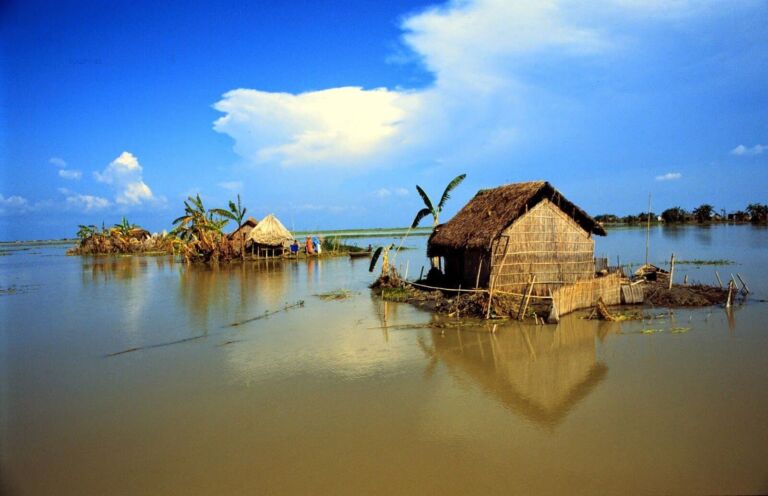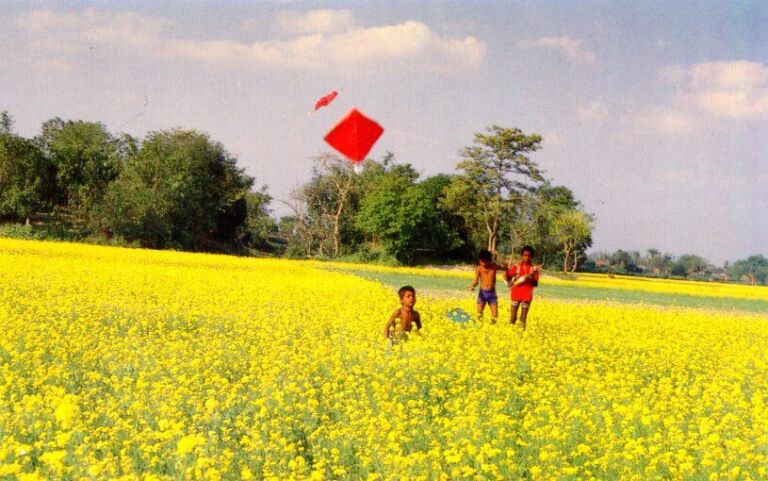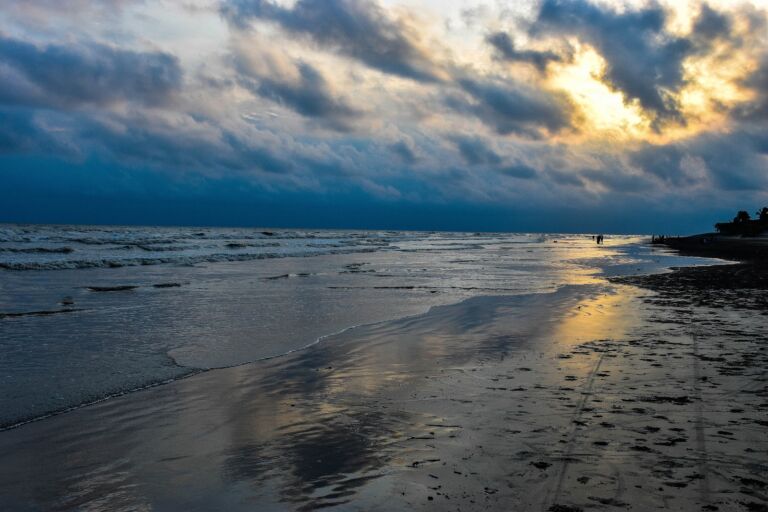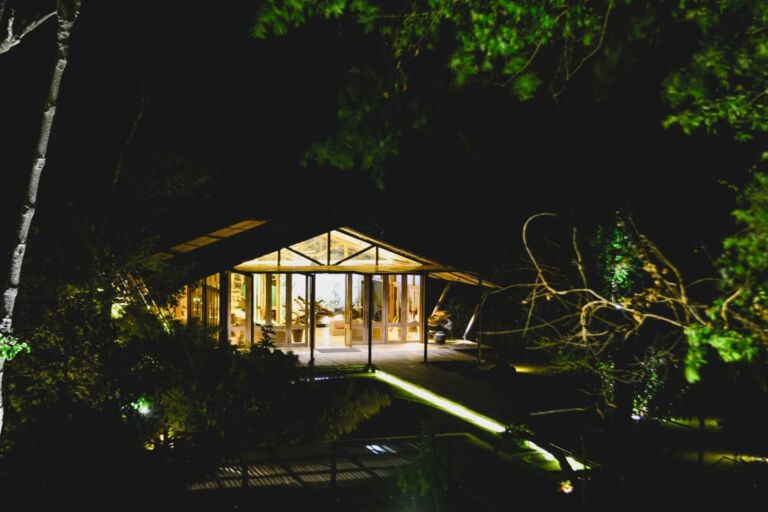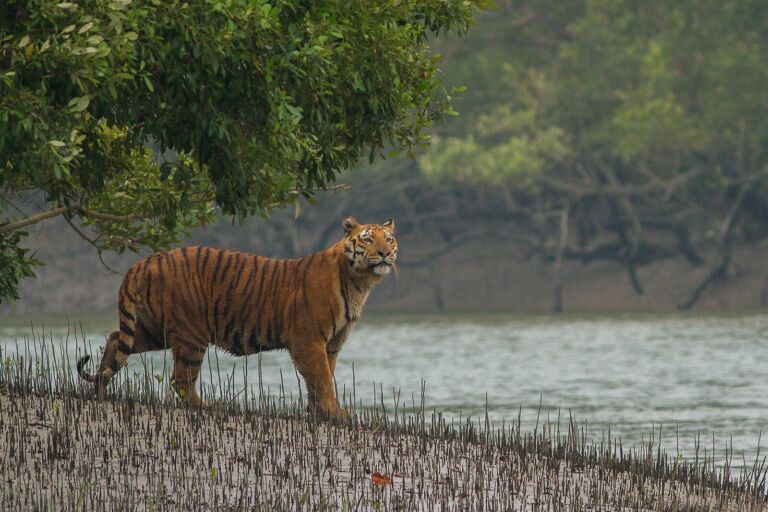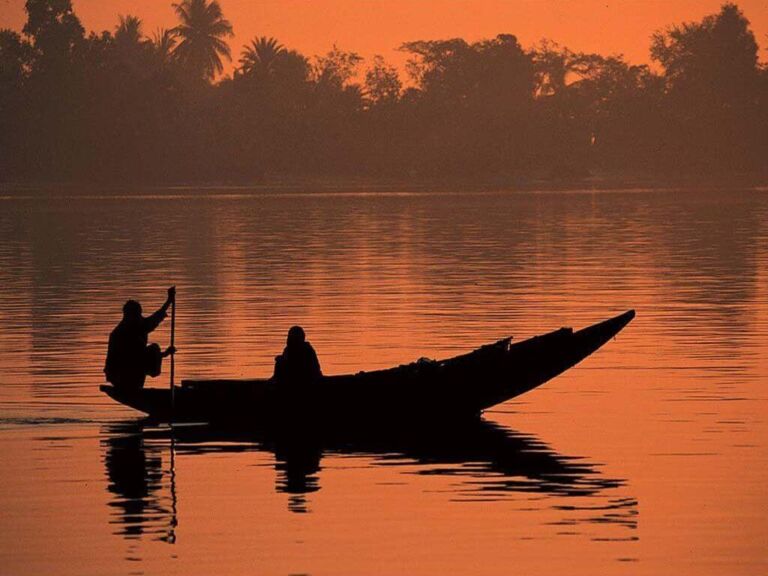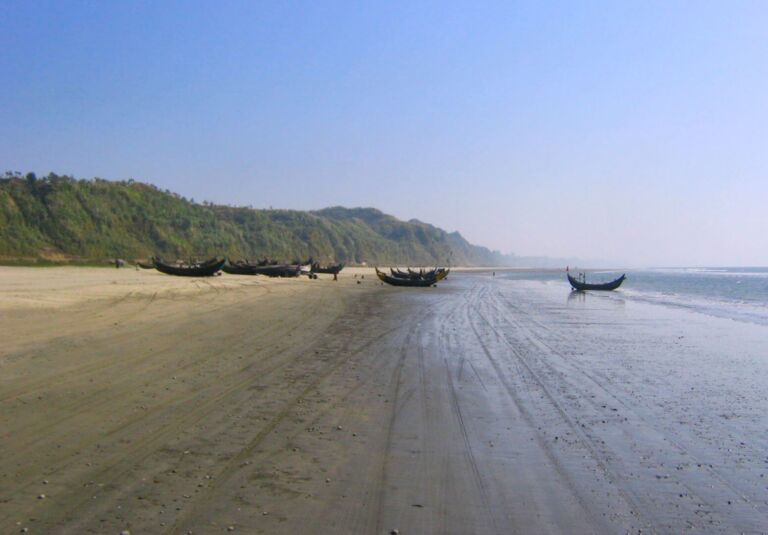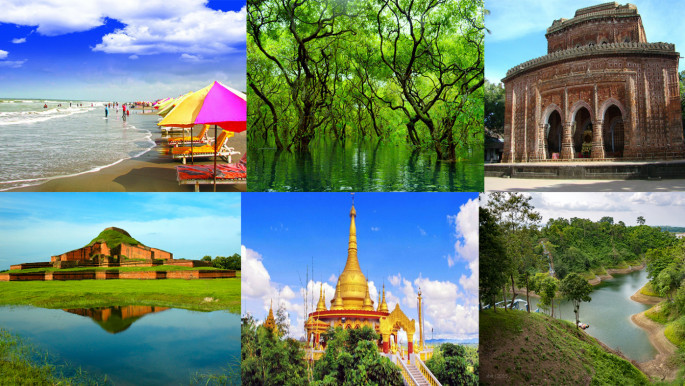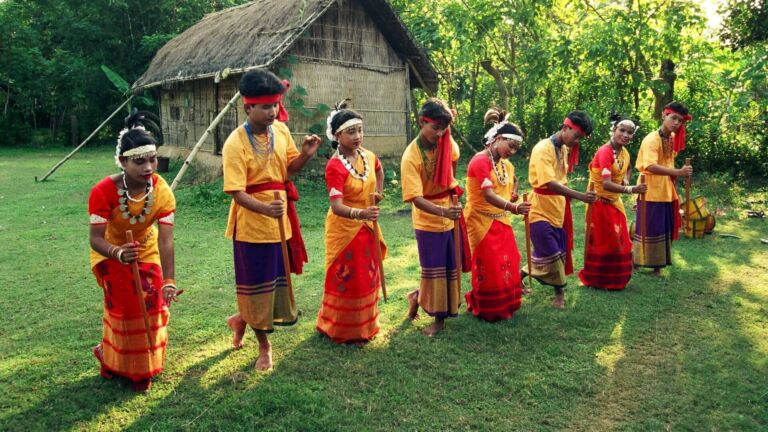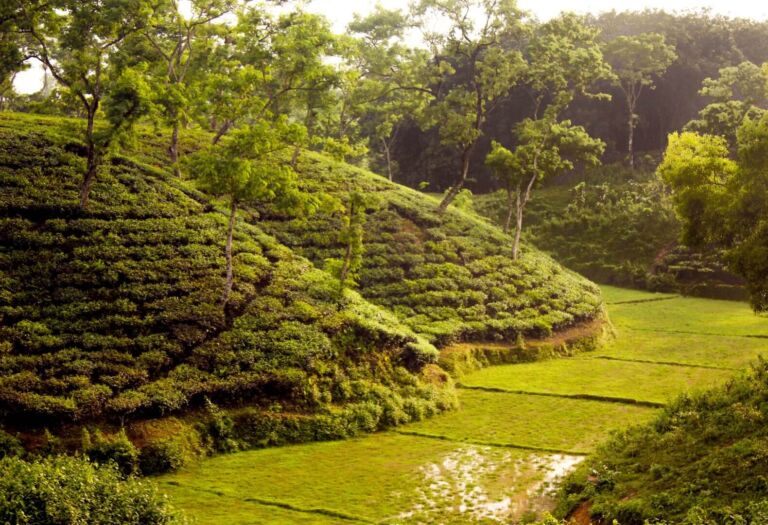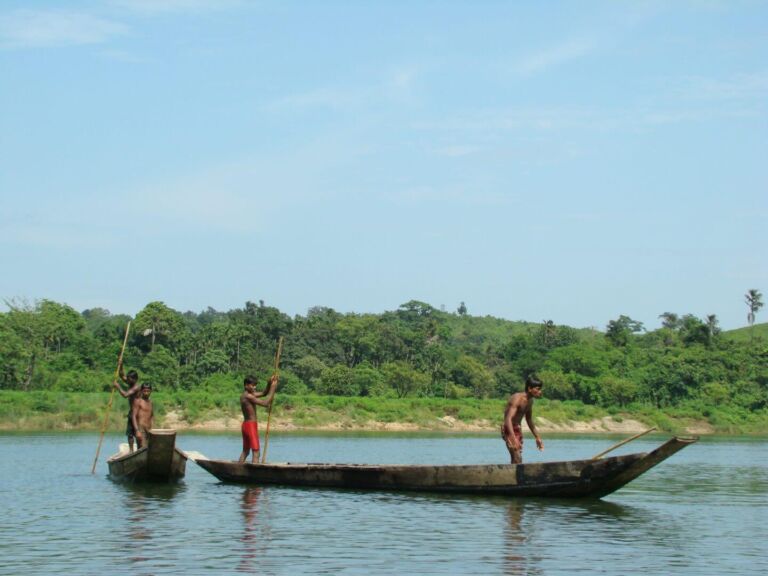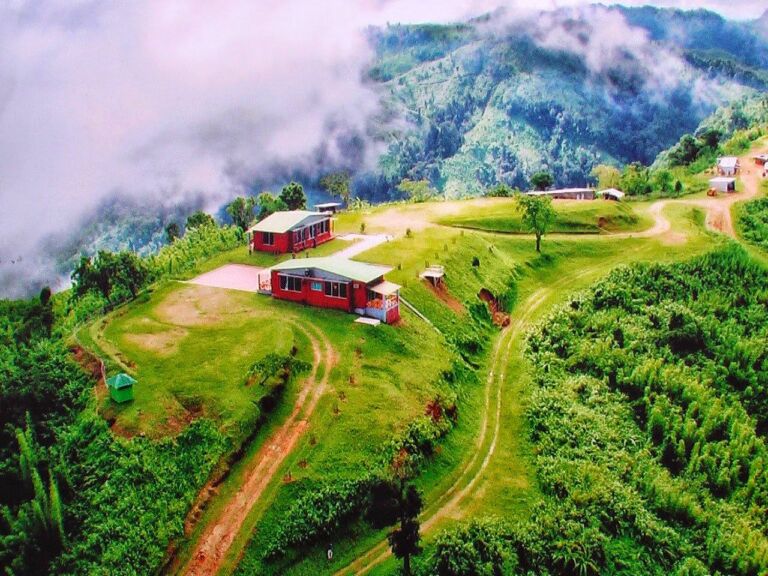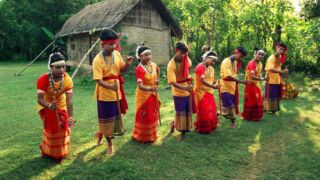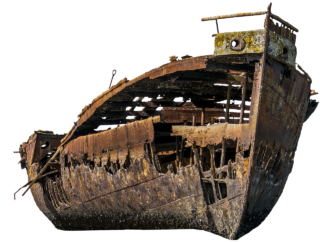- Duration: 5 Days (approx.)
- Location: Dhaka
- Product code: PXEPY1
5-Day Dhaka Cultural Heritage Tour: Floating Markets & River Life Experience
5 Days in Bangladesh: A Cultural Journey That Will Change Your Perspective Forever Introduction
Most travelers never discover that Bangladesh hosts floating markets where centuries-old commerce creates symphonies of wooden boats and shouting vendors. They miss the launch boats serving as highways for 165 million people, carrying entire families with their chickens, children, and dreams between cities.
This isn't your typical Southeast Asian backpacker trail experience. Bangladesh offers something rarer - authentic cultural immersion where locals haven't yet learned to perform for tourists. You'll sleep where Bangladeshis sleep, eat what families cook daily, and travel how millions navigate their watery homeland.
Ready to experience a country that tourism hasn't touched? Here's your day-by-day journey into the real Bangladesh.
Day 1: Landing in Dhaka - First Taste of Organized Chaos
Midnight Arrival: When Adventure Begins at Immigration
Your plane descends through monsoon clouds toward Hazrat Shahjalal International Airport. The humidity hits you the moment the aircraft door opens - thick, warm air that wraps around you like a welcome blanket. Immigration moves surprisingly quickly, and within an hour you're wheeling your luggage toward the arrivals hall.
Then comes your first magical moment. Your guide appears from the crowd, holding a sign with your name, grinning like he's greeting a long-lost friend. The 30-minute drive to Hotel Suktara International becomes your first cultural lesson as your guide explains tomorrow's adventures while Dhaka's midnight energy buzzes outside your window.
Sleep Preparation for the Adventure Ahead
Hotel isn't luxury by Western standards, but it's clean, comfortable, and perfectly positioned for exploring Old Dhaka. The air conditioning hums reliably, and the bed feels like heaven after your long journey. Set your alarm early - tomorrow, you dive headfirst into 400 years of Bangladeshi culture.
Pro tip from experience: The hotel's rooftop provides stunning sunset views of Dhaka's skyline. Ask for a room on the upper floors if possible.
Day 2: Old Dhaka Cultural Immersion - Where Time Stands Still
Morning Business to Afternoon Magic
After completing your morning business meetings (if any), your cultural adventure begins at 1:00 PM sharp. Your guide arrives with infectious enthusiasm and a rickshaw waiting outside. The transition from air-conditioned hotel to Dhaka's vibrant streets feels like stepping through a portal into another century.
Ahsan Manzil: The Pink Palace That Tells Stories
The Pink Palace emerges from Old Dhaka's maze like a fairy tale illustration. Built in 1872, Ahsan Manzil's Indo-Saracenic architecture makes you understand why locals call it Bangladesh's most beautiful building. Walk through rooms where Nawabs once held court, imagining the political intrigue and cultural celebrations these walls witnessed.
The palace museum displays artifacts that bring history alive. Ancient photographs show Dhaka when the Buriganga River ran clear and passenger launches looked like floating palaces. Your guide shares stories his grandfather told him about seeing the last Nawab's processions along these very riverbanks.
Buriganga River: Bangladesh's Liquid Highway
Board a traditional wooden boat for your first river experience. The Buriganga stretches before you like a brown ribbon carrying Bangladesh's commercial lifeblood. Cargo ships from Chittagong mix with passenger launches, fishing boats, and ferries in organized chaos that somehow works perfectly.
The shipbreaking yards appear along the riverbank like industrial graveyards where ocean vessels meet their end. Workers dismantle massive ships piece by piece, recycling steel that will become new buildings across Bangladesh. This unique industry exists nowhere else on earth with such scale and efficiency.
Dhaka University and Shaheed Minar: Where Independence Was Born
Dhaka University's red-brick buildings transport you to colonial Bengal when this institution educated future independence leaders. The campus buzzes with student energy that feels familiar yet distinctly Bangladeshi. Students practice English with genuine curiosity about your home country.
Shaheed Minar stands as Bangladesh's most sacred monument, honoring those who died defending Bengali language rights in 1952. The white marble structure rises like a flame frozen in stone. Local families bring children here to teach them about cultural identity and the price of freedom.
Rickshaw Adventure Through Living History
Climb into a decorated rickshaw for navigation through Old Dhaka's narrow streets. Your rickshaw puller has worked these routes for twenty years, knowing every shortcut and traffic pattern. The painted decorations on his rickshaw tell stories of Bangladeshi cinema, cricket heroes, and family pride.
Streets designed for pedestrians and horse carts now accommodate rickshaws, buses, cars, and millions of people creating organized chaos that initially terrifies Western visitors. After thirty minutes, you realize everyone follows unspoken traffic rules that work better than traffic lights ever could.
Meeting Local Families: Cultural Connections That Matter
Your guide stops at a centuries-old house where three generations live together. The family welcomes you with tea and genuine curiosity about your homeland. Grandmother shares stories about partition in 1947, when millions crossed borders seeking new homes. Children practice English words while showing you family photographs spanning decades.
These moments reveal Bangladesh's greatest treasure - the warmth of people who treat strangers like honored guests. The family matriarch insists you stay for early dinner, serving rice, dal, fish curry, and vegetables that taste better than any restaurant meal you've ever experienced.
Evening Food Adventure: Biryani That Ruins You Forever
Century-old restaurants in Old Dhaka serve biryani that commercial kitchens cannot replicate. The kacchi biriani arrives after hours of slow cooking - mutton so tender it falls apart at touch, rice grains perfectly separated and aromatic with saffron, cardamom, and secret spices passed through family generations.
Fresh faluda provides the perfect ending - sweet milk dessert with vermicelli that requires preparation techniques modern machines cannot achieve. Each spoonful offers flavor combinations that Western desserts never attempt.
Personal discovery: The biryani preparation process fascinates local chefs who explain each step. Asking questions demonstrates genuine interest that creates cultural bridges.
Day 3: Sonargaon Heritage and Launch Journey - Time Travel and River Life
Morning Departure: From Capital to Ancient Capital
Early morning departure from Dhaka reveals Bangladesh's countryside transformation. Rice fields stretch toward horizons interrupted only by palm trees and rural villages. The journey to Sonargaon takes you through landscapes that haven't changed significantly in centuries.
Banglar Taj Mahal: Bollywood Dreams in Rural Bangladesh
The replica Taj Mahal appears surreal in rural Bangladesh context. Built as a film set, this structure now attracts domestic tourists who cannot afford trips to India. The gardens contain movie props and animals that create unexpected entertainment in this countryside setting.
The tropical fish gallery provides cool relief from morning heat while displaying Bangladesh's incredible aquatic biodiversity. Many visitors don't realize Bangladesh contains some of the world's most diverse freshwater fish populations.
Sonargaon: Walking Through Medieval Bengal
Sonargaon served as Bengal's capital when European traders first arrived seeking muslin cloth so fine it was called "woven air." The Folk Heritage Museum preserves artifacts from this golden period when Bengali textiles were more valuable than gold in European markets.
The 15th-century Goaldi Mosque demonstrates architectural techniques that survived centuries without modern restoration. Original brick and mortar work shows craftsmanship levels that modern construction rarely achieves. Photography here requires patience as light filters through ancient arches create constantly changing shadows.
Abandoned colonial mansions tell stories of British administrative attempts to recreate English countryside in tropical Bengal. Decay adds haunting beauty to buildings where colonial officers once hosted garden parties while revolutionary independence movements gathered strength in surrounding villages.
Launch Boat Experience: Bangladesh's Floating World
Board your traditional launch boat as afternoon light turns golden on the river. This overnight journey reveals how millions of Bangladeshis travel between cities using transportation methods their grandparents perfected. The launch serves as floating hotel, restaurant, and social center for passengers from all economic backgrounds.
Dinner on deck while watching sunset creates moments that professional photographers spend careers trying to capture. River communities wave from passing boats while children jump from launch roofs into river water with fearless joy that urban children never develop.
Your cabin provides basic but surprisingly comfortable accommodation. The gentle rocking motion and river sounds create natural sleep therapy that luxury hotels cannot replicate. Late-night conversations with crew members reveal perspectives on river life that academic studies miss entirely.
Reality check: Launch boat bathrooms are basic. Bring hand sanitizer and maintain realistic expectations about Western comfort standards.
Day 4: Floating Guava Market - Commerce That Time Forgot
Dawn on the River: Natural Alarm Clock
Wake to launch boat engines slowing as you approach Barishal. River mist creates ethereal atmosphere while traditional breakfast arrives with famous Barishal sweets that locals travel hours to purchase. The rosogolla here supposedly inspired similar sweets throughout Bengal.
Private Boat to Floating Market: Entering Another Century
Board a private boat for navigation through narrow canals lined with guava orchards. Farmers wave from trees while loading boats with perfectly ripe fruit. The seasonal timing creates perfect conditions - guava harvest meets ideal weather for river commerce.
The Floating Market Experience: Organized Chaos on Water
Hundreds of wooden boats converge in canals creating temporary floating markets that operate through traditions older than any written records. Farmers sell directly to wholesale buyers who redistribute fruit throughout Bangladesh using transportation networks that existed before roads connected rural areas.
The commerce complexity astounds first-time observers. Price negotiations happen through hand signals and shouted Bengali while boats maneuver through impossibly narrow spaces. Everyone knows everyone else's family history, creating trust relationships that eliminate need for written contracts.
Photography opportunities seem endless until memory cards fill with images of authentic rural commerce that modern retail cannot replicate. Golden hour light illuminates boat loads of green and yellow guavas while traders create human chains passing fruit between vessels.
Cultural Exchange: Learning from River Traders
Guava farmers explain seasonal patterns that determine fruit quality and market prices. Their knowledge spans generations of experience reading weather signs, water levels, and soil conditions. These conversations reveal agricultural sophistication that university textbooks cannot teach.
Boat traders share stories about families who've worked these routes for centuries. Children learn navigation and fruit quality assessment from grandfathers who remember when steamships carried British administrators through these same waterways.
Evening Return: Sunset on Bangladesh's Waterways
The return journey to Barishal town center provides reflection time for processing market experiences. Riverside restaurants serve fresh river fish prepared with local techniques that create flavors impossible to replicate without access to this specific ecosystem.
Board the night launch back to Dhaka as vendors sell tea and snacks on the dock. Fellow passengers include families, business travelers, and students creating social microcosm that represents Bangladesh's diversity. Card games and conversations continue late into the evening while river communities pass by like floating villages.
Travel wisdom: The floating market operates seasonally from November through February. Plan accordingly for this once-in-a-lifetime experience.
Day 5: Final Explorations and Farewell - Completing the Circle
Early Morning Return: Changed Perspective
Early morning arrival in Dhaka (around 5-6 AM) completes your river journey education. The city looks different now - less chaotic and more like organized energy that powers a nation of 165 million people. Rest at the hotel provides time for processing cultural experiences that photographs cannot adequately capture.
Lalbagh Fort: Mughal Military Architecture
Complete business meetings as needed before visiting Lalbagh Fort, the 17th-century Mughal fortress that controlled Bengal's river approaches. The incomplete structure tells stories of imperial ambition interrupted by personal tragedy when the governor's daughter died during construction.
Walk through underground passages designed for siege defense while imagining political intrigue between Mughal administrators and local Bengali resistance. The tomb of Bibi Pari remains hauntingly beautiful, displaying architectural techniques that created cooling effects without modern air conditioning.
National Museum: Cultural Context
The National Museum collections provide context for cultural experiences from previous days. Ancient Bengal sculptures, independence movement artifacts, and traditional crafts displays help organize memories and understanding from your immersion journey.
Liberation War exhibits remind visitors that Bangladesh achieved independence only in 1971, making cultural preservation efforts even more remarkable. Traditional boat models connect to your launch experience while textile displays recall Sonargaon's historical importance.
Final Shopping and Farewells
New Market offers souvenir shopping with prices that seem incredibly reasonable after Western cost experiences. Traditional handicrafts, clothing, and spices provide tangible memories while supporting local artisans who preserve traditional skills.
Your final meal choice between restaurant or home-style dinner with a local family creates one last cultural connection opportunity. Many travelers choose the family dinner option, creating friendships that continue through social media correspondence for years.
Airport Departure: Carrying Bangladesh Forward
Departure transfer provides final opportunities for questions and cultural reflection with your guide. The three-hour early airport arrival recommendation proves wise given Dhaka's unpredictable traffic patterns.
Check-in assistance helps navigate departure procedures while you process five days of experiences that challenge every stereotype about Bangladesh you might have held previously.
Conclusion: Why This Journey Changes Everything
Bangladesh cultural immersion challenges comfortable assumptions about development, happiness, and human connection. You discover that floating markets create commerce more authentic than any shopping mall experience. Launch boats provide social interactions that airplane travel never offers.
The warmth of Bangladeshi hospitality teaches lessons about human generosity that luxury tourism cannot replicate. Families who invite strangers for tea demonstrate cultural values that material wealth cannot purchase.
Most importantly, you return home with stories that inspire others to question their assumptions about countries they've never visited. Bangladesh offers authentic cultural experiences that commercialized tourism destinations lost decades ago.
Book this journey before tourism development changes Bangladesh's authentic character. The floating markets, launch boats, and family connections that create magical experiences exist now but may not survive another generation of modernization.
Ready to experience Bangladesh beyond every expectation? This cultural immersion awaits travelers brave enough to abandon tourist comfort zones for authentic human connections that last lifetimes.






















